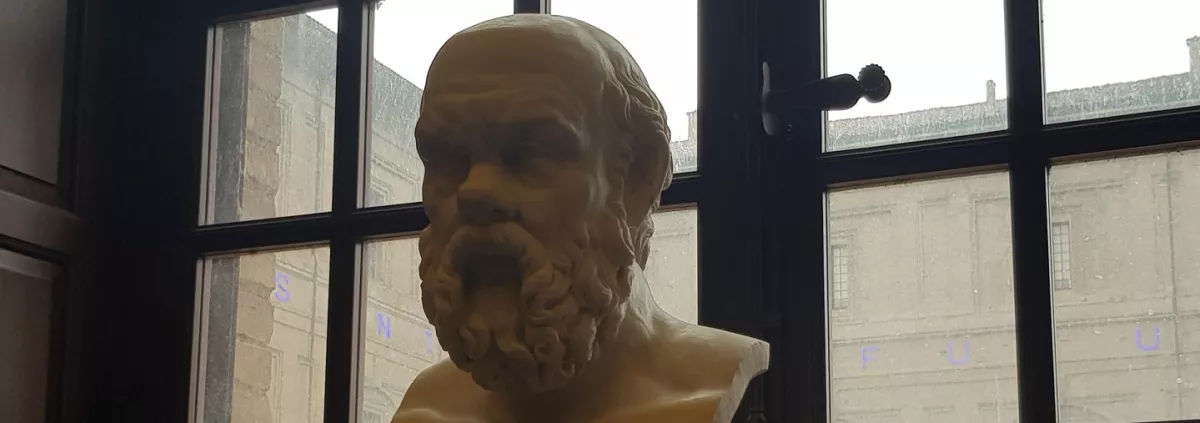It is generally agreed that Socrates was the first person to champion dialogue as the best method for discovering and sharing knowledge. Socrates walked his talk around Athens, interrupting craftsmen, shopkeepers, politicians and athletes, asking them what they knew and making them reflect upon their own practices. For Socrates, learning was by no means confined to the classroom – nor was learning only for the young. He believed that knowledge and virtue were only possible through interaction with all trades, types and ages of people – knowledge came, if it came at all, when they complemented and contradicted one another.
It is this original Socratic method of learning, that should inspire our Community of Innovative Educators. Like the ancient Athenians, we cannot rely upon custom and habit to prepare for the future – like them we live in an age of disruption and uncertainty. We have to ask one another what to believe and how to act. We have to challenge one another to reflect upon what we do and be self-critical. Somehow we need to make time to enter into conversation with awkward types, who ask us if our assumptions are wrong and suggest that we might do things differently.
Unfortunately, ugly old Socrates is no longer around to provoke us. So we are going to have to take turns to provoke one another! As educators we have to challenge and inspire one another. And of course, I have every hope that we can have as much pleasure in our debates as Socrates and his friends had back then.
However, unlike some of those philosophers, I think we should favour arguments that are rooted in practice. Too much discussion about educational innovation gets taken up with theories and ideas. I blame Plato! Rather than discussing endlessly what we mean by ‘digital competence’ or ‘formative assessment’ or what-ever I want to hear about how teachers and learners have been making use of new concepts and new tools in their teaching and learning. It’s not that the theories are not fascinating, I just think that they can sometimes lead us way from what we can already achieve ourselves, in our own schools and with our own learners.
This is why, I believe, on-line communities of educators have great value. A community of practice helps us to find one or more other practitioner who has experience and know-how about some particular improved practice – which is relevant to the particular problems that we as educators are trying to solve. We do not need to find a general theory of change or pedagogy and make it relevant to our particular context – rather we can learn directly from individual teachers. We plan that this community will give each and every member the opportunity to learn from many other innovative teachers – and indeed that it will provide some professional companionship for educators who, either by choice or necessity, are having to change the way they work.
Find out more about the Community of Innovative Educators

"There is only one good, knowledge, and one evil, ignorance". SOCRATE
In pedagogy, theorizing follows practice usually. Know-how is at the first place, but we need pedadogy to share the practice consciously.
Let's discover the new Socrates's in the community!
Or maybe we can establish a Socrates award! :)
This Community of Innovative Educators will be our gold mine! Sharing ideas and experiences with other practitioners from all corners of the globe will enrich every one of us and will help in our everyday work in education.
Please log in or sign up to comment.